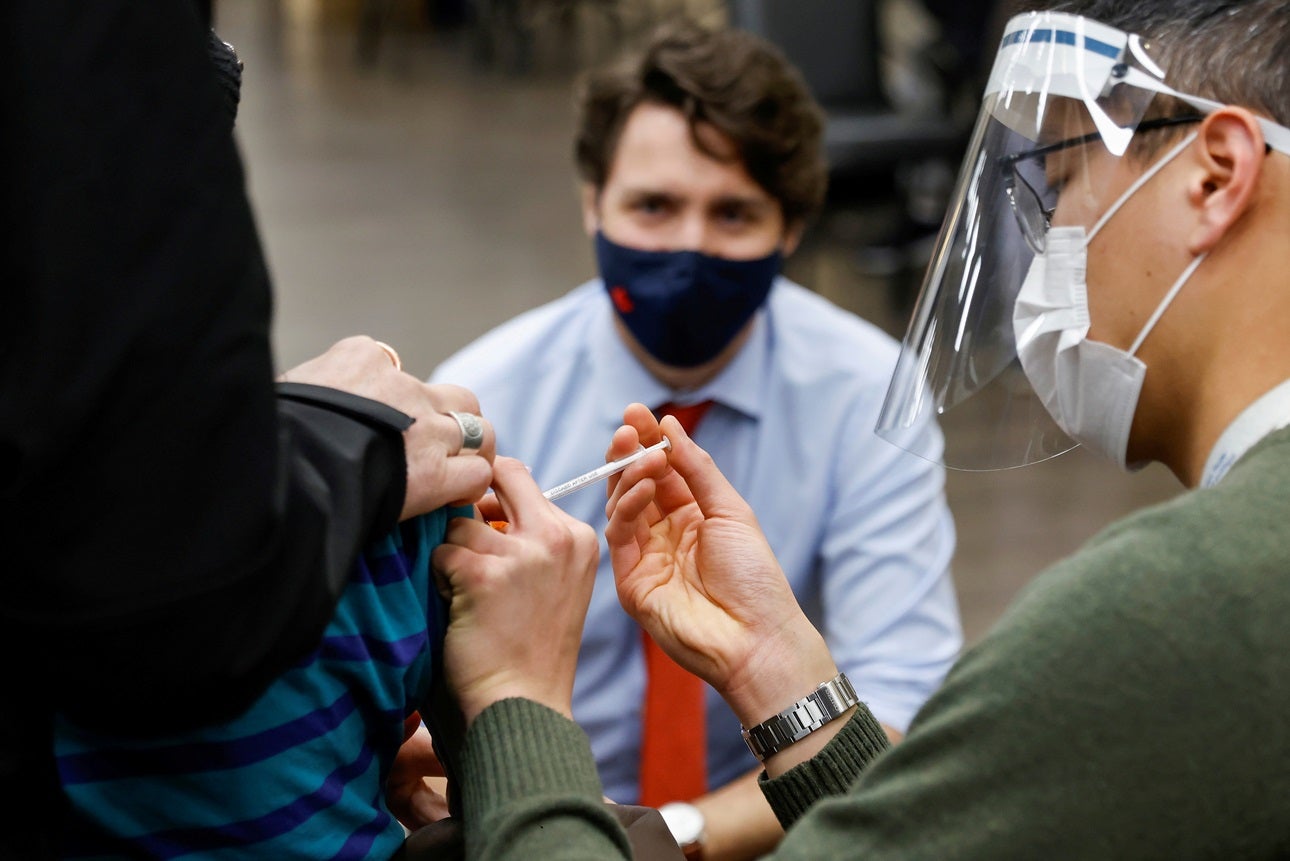COVID-19 Vaccination: Canada’s Formula for Success
Canada's mixing and matching of vaccines and delayed dosing regimen is proving to be an effective strategy to prevent hospitalizations and death

In the fight against COVID-19, Canada may have found an effective formula for success. The country of 38 million has employed a unique two-part strategy to fight the coronavirus amidst a surge in Delta variant numbers worldwide: delaying second shots and mixing vaccine types. As a result, the CBC reported, Canada may be saving lives at higher rates.
Data from the BCCD, the British Columbia Centre for Disease Control and the INSPQ, the Quebec National Institute of Public Health, shows the decision to vaccinate more Canadians by delaying second shots for all Canadians by four months (instead of the recommended three) generated 93 percent protection against SARS-CoV-2, versus the expected 82 percent average protection promised by vaccine manufacturers of Canada’s available vaccines, after the second dose.
Epidemiologist and BCCDC lead Dr. Danuta Skowronski said the country’s decision to delay second shots was informed by "fundamental principles of vaccinology.”
In mid-December, as Pfizer vaccines began rolling out in the U.S., she realized the pharmaceutical giant had included in its recommended dosing regimen a two-week period that followed the first shot. But because vaccine immunity is gradual, Dr. Skowronski said, Pfizer had been underestimating the true efficacy of the first dose. The efficacy was not 52 percent. “It was actually 92 percent,” she said.
Furthermore, allowing the combining of Canada’s three available vaccines – AstraZeneca-Oxford, Pfizer-BioNTech, and Moderna – would ensure more Canadians were vaccinated, while maintaining the same protection they would have with two shots of just one kind of vaccine.
The findings prompted Canada to change its strategy, expanding the space between doses and allowing a mixing and matching of shots. The recommendation, said the CBC, “was not without controversy at the time, and no doubt led to confusion among many Canadians about whether they were adequately protected.” It even led Mona Nemer, Canada's Chief Science Adviser, to say that the approach “amounted to a population-level experiment."
Early indications are that this strategy is effective. In Quebec, from May 30 to September 11, the province saw 181 people die from COVID-19. Of those, almost all (178 people) were not fully vaccinated. This means vaccine effectiveness against death was higher than 97 percent. The dosing regimen, researchers found, was also delivering more than a 92 percent protection from hospitalizations against all circulating coronavirus variants of concern in Canada at that time, including the Delta variant. It is also making Canadian researchers reevaluate the need for booster shots. The country also prioritized those most at risk, excluding those at high risk of hospitalization and death from COVID-19 from this strategy.
Though there is still much to be learned about waning immunity, Canada’s strategy seems to be working and may help inform other countries' strategies.
